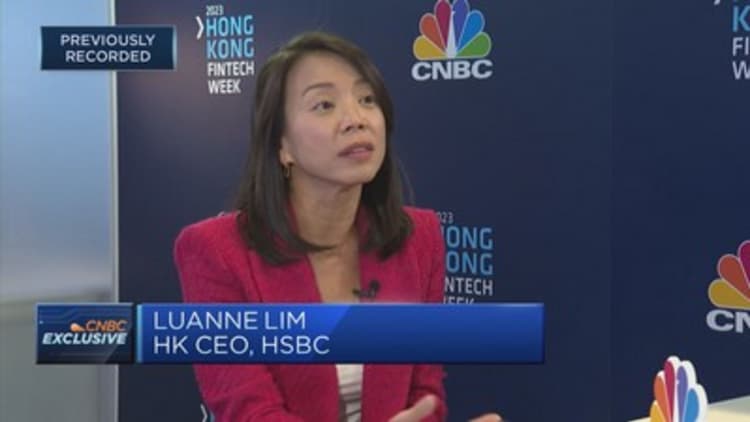Hong Kong Street Scene, Mongkok District with busses
Nikada | E+ | Getty Images
Hong Kong’s initial public listing market remains in a slump, even as analysts predicted a market rebound in the second half of the year.
“The Hong Kong market has not recovered as much as we would like,” Irene Chu, partner at KPMG China, told CNBC.
In the first three quarters of the year, the Hong Kong IPO market concluded 44 listings, and raised 24.6 billion Hong Kong dollars ($3.14 billion), according to KPMG. It represented a drop of 65% in deal count and 15% in proceeds respectively compared to the same period last year, the firm said.
Hong Kong’s stock market was among the worst performing last year, shedding 15% in 2022 for its third-straight year of declines. In October, the Hang Seng Index and Hang Seng Tech Index fell to their lowest levels since November 2022.
The general sentiment has not yet recovered. We cannot expect the IPO market to rebound quickly or be comparable with the good old days.
Ringo Choi
Asia-Pacific IPO leader, EY
“The Hong Kong market is already at [a] very low point [compared to] the good old days in 2020 or before that. So the general sentiment has not yet recovered. We cannot expect the IPO market to rebound quickly or be comparable with the good old days,” said Ringo Choi, Asia-Pacific IPO leader at EY.
A June report by EY and a mid-year review released by KPMG China predicted the Hong Kong IPO market could rebound in the second half of 2023.
On Oct. 27, the market debut of J&T Express, a Tencent-backed Indonesian logistics service provider, put up a lackluster performance. Shares opened flat and subsequently ended 1.33% lower.
J&T, the second largest listing in Hong Kong this year, had originally expected to raise at least $1 billion in the listing but cut the target by half on the back of weak investor sentiment, according to Reuters.
“The Hong Kong stock market remained weak in Q3 2023, as did stock valuations, because of macroeconomic developments, in particular around U.S. interest rate hikes. Many IPO candidates continue to wait-and-see for a turnaround in market valuations while preparing and planning their offerings,” said Deloitte in a September report.

Hong Kong’s biggest IPO this year, Chinese liquor maker ZJLD Group, plummeted 18% in its trading debut on April 27.
The two largest IPOs in the Asian financial hub last year also slumped in their listing debuts. Chinese electric vehicle maker Zhejiang Leapmotor dived 34%, while property services provider Onewo fell almost 7%.
“Five of the last nine large HKEx IPOs had flat debuts. At the last close prices, all the large HKEx IPOs since 2022 are trading below the IPO prices,” said Arun George, co-founder and analyst at Global Equity Research in a Oct. 26 report published on Smartkarma, an investment research network.
Weak Greater China recovery
Hong Kong is a special administrative region of China, which has faced a disappointing post-Covid economic recovery. In October, the International Monetary Fund lowered its growth forecast for China to 5% this year and 4.2% in 2024.
The stock exchanges of Shanghai and Shenzhen raised $28.7 billion and $19.8 billion in funds respectively from January to Oct. 9, dropping 42% and 23% compared to the first three quarters of last year, KPMG reported.
But analysts say the global economy outside of China is struggling to recover. “It’s not just China. The recovery of the global economy is also quite challenging. Overall economic recovery takes a bit of time to really pick up,” said Chu of KPMG China.
In the first three quarters of this year, there were 968 IPOs globally, which raised $101.2 billion in capital —a 5% and 32% decrease year-over-year respectively, said EY.
In a bid to bolster the market, the Hong Kong Stock Exchange in September proposed measures to enhance the appeal for small- and medium-sized enterprises with high-growth potential to list.
In August, the government announced a task force to “enhance” stock market liquidity in order to bolster the development of its capital market.
“The dynamic initiatives, coupled with HKEX’s continuous improvement of its listing regime, are crucial to strengthening Hong Kong’s diverse and multi-layered capital markets, a key to maintaining the competitiveness of Hong Kong as a premier international financial centre,” said KPMG.
Credit: Source link













